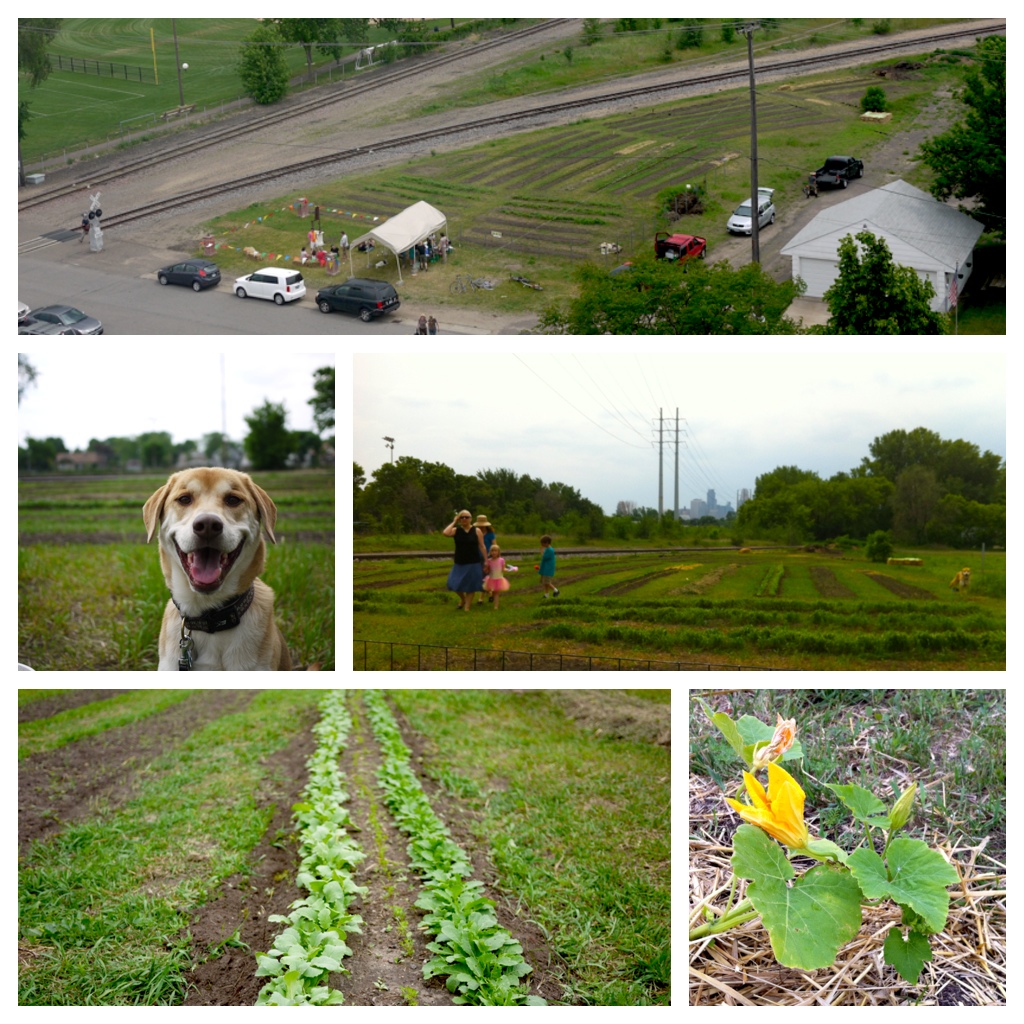These freezing temps may have slowed the rest of us down, but Minnesota’s farmers have been busy prepping for the growing season. They’re attending conferences, figuring out how to best extend their growing season in Minnesota’s challenging climate, selecting the best varieties for their land and their customers, keeping their livestock warm and fed, and figuring out the how to boost their bottom lines while being environmental stewards and community-builders. They have been very busy, indeed.
And now it’s our turn to get to work selecting our CSAs for next year. Selecting a CSA can be a bit daunting, but never fear—you have time on your side, and this annual ABCs of CSAs will help you navigate.
The Basics on CSAs
A Community Supported Agriculture (CSA) operation is a partnership between local producers and their subscribers. Before the growing season commences, a CSA farming operation sells subscriptions to members of the public who pay upfront and then become stakeholders in the farm. You, as a stakeholder, receive regular boxes of food (called “shares”) from the producer during the growing season in return for your subscription dollars.
When you subscribe, you enjoy the benefit of having a relationship and understanding with the people growing your food. In a very direct way, you experience both the challenges and the bounties that the producer experiences. And, undoubtedly, you will receive some kind of produce in your CSA box that will challenge you to try something new.
Membership arrangements, delivery locations and frequency, products, opportunities for involvement, and costs vary with each CSA operation, so research is the key to finding one that suits you. There are several CSA opportunities in the Twin Cities area. To make it easier for you to select which CSA opportunity works best for you, Land Stewardship Project releases an annual CSA Farm Directory which provides details on more than 60 Twin Cities area producers and their wide variety of CSA subscription plans.
What if I Can’t Handle a Whole Box of Produce?
An almost-full bushel of produce every week might be too much for some folks. If you’re one such person, consider these options:
- Many Twin Cities CSA operations offer half-shares which are smaller shares for less money. Some of the farms that offer half shares include Axdahl’s Garden Farm & Greenhouse, Blackberry Community Farm, Broadfork Farm, Fox & Fawn Farm, Growing Lots Urban Farm, Hulgan House Heritage Farm, Jake’s Burr Oak Farm, Prairie Sun Farm, Shepherd Flock Farm, Stone’s Throw Urban Farm, Untiedt’s Vegetable Farm, Uproot Farm, and Wozupi.
- Split a share with a family member or neighbor. One of you picks up the share, and you split the box each week, or you alternate weeks, so each ends up with a full share every two weeks.
- Many CSA subscribers save their seasonal bounty for later use through preservation techniques such as canning, freezing, pickling, and drying. I just made some tomato soup last week using tomatoes that I canned from the my CSA share last summer. The University of Minnesota Extension website has all the information you need if you’re interested in getting started with food preservation.
I Want to Make my Choice Based On Pick Up Location
Perhaps you’d like to pick up your share at your community co-op, farmers market, or a pick up site that is closest to your workplace. If you look in the CSA handbook, most farms have listed their pick up spots. Axdahl’s, Big Woods Farm, Blackberry Community Farm, Green Earth Growers, Loon Organics, and Thorn Crest Farm have all listed the co-ops where they do their pick ups. You can also pop in to your neighborhood co-op and ask if they have a list of the CSAs that offer pick ups there.
While this list is incomplete, here are some convenient Twin Cities pickup locations:
- Seward Co-op: Blackberry Community Farm, Common Harvest Farm
- Eastside Co-op: Blackberry Community Farm
- Just Food Co-op: Big Woods Farm
- Whole Foods, St Paul: Green Earth Growers
- Valley Natural Co-op: Green Earth Growers
- Mill City Farmers Market: Loon Organics
- Linden Hills Farmers Market: The Farm of Minnesota
Seward Co-op hosts an annual CSA fair in spring that showcases area CSA farmers. This is an opportunity to actually speak to the farmers in-person. This spring’s date hasn’t been announced yet, but stay tuned for an announcement on their website.
Beyond Produce
CSAs can provide more than just produce—eggs, flowers, cheese, meat, and more are also available through CSAs in Minnesota. As you read through the directory, take note of those additional items that appeal to you—whether it’s pastured-raised eggs or fresh-cut flowers. There are also CSAs that specialize in items other than produce.
Non-Produce CSAs Not listed in the Land Stewardship Project’s CSA Directory
So now that you’re armed with information, feel free to share which CSA you’ve selected and why. We love to hear about all the great CSAs in Minnesota.
Cross posted from:
The ABCs of CSAs: 2014 - Twin Cities Taste - February 2014 - Minnesota
[where: Sustainable Food, St. Paul, Minneapolis, Twin Cities, Minnesota]


